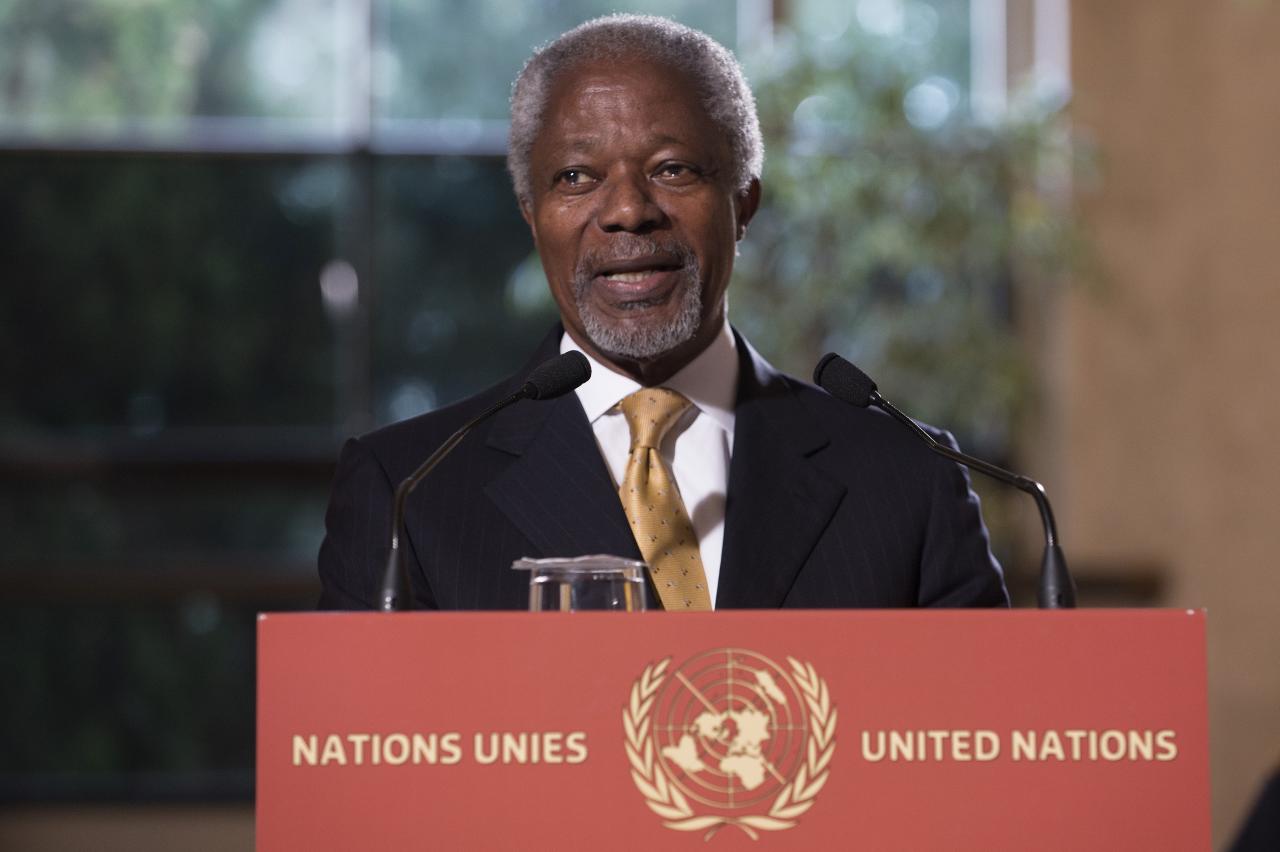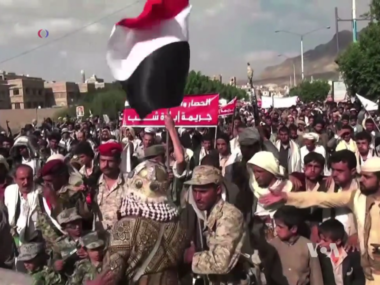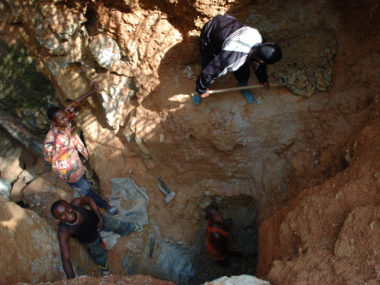Guest post by Akbar Ahmed and Brian Forst.
Kofi Annan will long be remembered for his celebrated, if sometimes controversial, term as secretary general of the United Nations from 1997 to 2006, and for winning the Nobel Peace Prize in 2001. He will be remembered no less for his decency, thoughtfulness, eloquence, disarming frankness, commitment to service, and for his humility. He will be remembered also for living out these deeply rooted attributes even in the face of extreme adversity, to achieve humanitarian objectives that had been previously impossible.
Annan’s most controversial acts during his tenure as secretary general were his sharp opposition to the United States invasion of Iraq in 2003—a “sin” for which he has long since been vindicated—and his reluctance to be more aggressive in dealing with humanitarian disasters, especially in Rwanda. His reluctance is understandable. The secretary general of the United Nations is not commander in chief of a sovereign nation. Still, Mr. Annan directed an unprecedented expansion of the UN’s peacekeeping role with the deployment of 75,000 troops on 19 missions.
The United Nations may be an inherently ungovernable organization, given its broad constituency and the depth and breadth of international conflicts and dilemmas it has faced since its creation in 1945. Annan succeeded nonetheless in reforming its bureaucracy and launching initiatives that did much to advance the UN mission, including his creation of the UN Global Compact in 2000, which induced businesses around the world to adopt sustainable and socially accountable policies, and initiatives to combat HIV through the creation of the Global Fund in 2002. He brought the United Nations from the tower to real people on the ground. It is no coincidence that he was the first secretary general to be elected from the ranks of the UN staff, having worked for the organization since 1962.
In the face of these considerable gifts and accomplishments, we fear that the substance and power of his central message might come to be forgotten—that reflective people can work to make a difference under difficult circumstances even with long odds against success. In 1995, in the wake of the ethnic crisis in Bosnia, Annan observed: “In looking back we shall all record how we responded to the escalating horrors of the last four years. And as we do so, there are questions that each of us will have to answer. What did I do? Could I have done more? And could it have made a difference? Did I let my prejudice, my indifference and my fear overwhelm my reason? And how would I react next time?”
In 2005 we had the good fortune of getting Mr. Annan to contribute an essay to a book (After Terror) designed to counter a strong and dangerous message stimulated by the 9/11 attack: that the world was engaged in an existential clash between the West and Islam. He delivered a clear message: Civilizations and cultures are “organisms in constant flux”; we can help shape them by first recognizing that we “can love what we are without hating what we are not,” and then engaging in dialogue “of words and deeds” between cultures, ensuring that this dialogue “distinguishes lies from facts, and propaganda from sound analysis” in order to “uncover the real grievances that lie at the heart of conflict.” He elaborated with a passage that is no less pertinent today than when he wrote it thirteen years ago:
Intolerance around the world is as widespread as it is pernicious. But our challenge is not just to diagnose the disease. We must treat it. We cannot dismiss discrimination as an unavoidable aspect of human nature. Just as people can be taught to hate, so can they learn to treat others with dignity and respect. Nor can we accept intolerance as a predictable by-product of poverty, injustice, or poor governance. It is well within our power to change such conditions. Nor can we afford to ignore inflammatory rhetoric on the grounds that words can do little real harm. Hostile rhetoric is all too often the precursor to hostile acts, and hostile acts have a way of escalating into violence, conflict, and worse. All of us need to join this battle.
He concluded with his vision of the global civilization for the new millennium:
Alongside the world’s rich variety of civilizations, cultures, and groups, there is also, I believe, a global civilization that we are called on to defend and promote as we embark on a new century. It is a civilization defined by its insistence on universal human rights and freedoms, its tolerance of dissent, and its belief in the right of people everywhere to have a say in how they are governed. It is a civilization based on the belief that diversity is something to be celebrated, not feared. Indeed, many wars stem from people’s fear of those who are different from themselves. Only through dialogue can such fears be overcome.
As we remember Kofi Annan’s deeds and accomplishments, let us not forget his message. It speaks profoundly to the troubles we confront today.
Akbar Ahmed is the Ibn Khaldun Chair of Islamic Studies and is Professor of International Relations in the School of International Service, American University, Washington, DC. Brian Forst is Professor of Justice, Law and Criminology Emeritus in the School of Public Affairs, American University, Washington, DC.







